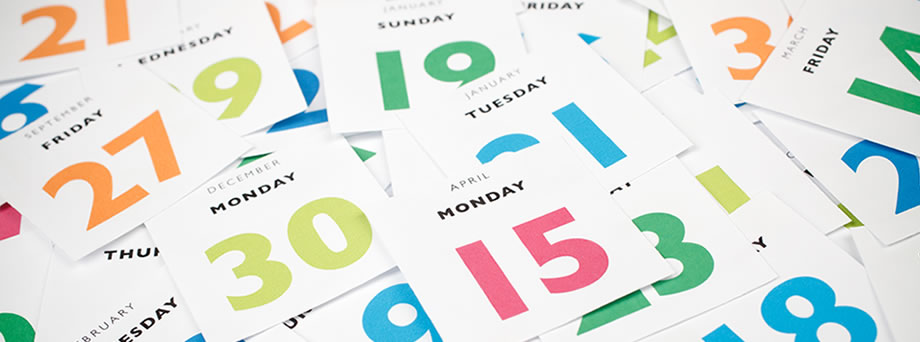With online marketing becoming a highly effective marketing tool for building a company’s brand, it is crucial that there is consistency in posting content. The way to have the most effective presence and brand awareness online is by building a calendar to ensure your company is consistent with posting – whether on a blog, Facebook, Twitter, or even your website.
By setting up a content calendar, including knowing who is reading it, where the content is being posted, and why you are posting, you are setting your online marketing up for success. Failure to develop a calendar for consistent content creation, will affect the reputation of your brand.
Forgetting Your Who, What, Where, When, Why and How
So, what happens if you neglect to develop a content calendar, outlining your 5Ws and How? Your company’s writing becomes much more sporadic, often the quality of the content falls, and you leave your readers wondering what the purpose of your blog is.
The result?
- Readers question if your company is actually up-to-date on information in the industry… and the one the audience should be looking at as an expert.
- Your readers wonder if your company is still running, particularly if there are long spaces between your social media and blog posts.
- Your search results with Google are affected. Google LOVES new, well-written content and companies maintaining quality content and a posting calendar are continually being “read” by Google which ultimately positively affects their ranking in search engine results.
- You brand appears to lack commitment. In other words, your audience will wonder – even if subconsciously – if your company is sporadic with content, how are you with clients and service?
- If there is no true focus on the content, whether a blog or Facebook post, it is most likely not as strategically planned out as it could have been if the 5 Ws and How were considered.
By being sporadic in your content and not actually focusing on the purpose behind your post (5 Ws and How), you’re leaving the company’s online image open to negative reviews – whether conscious or sub-conscious – as well as a lower organic ranking within search engines.
Planning Your Content Calendar
Take an hour to sit down and plot out WHEN you have to post, WHO is developing and editing the post, WHAT is being said, WHY is it being said, WHERE is the post going to be shared, and HOW is it going to be written, revised, and posted.
By taking the time to properly plan the dates and purpose behind every online post, you are setting up your company’s online marketing for success, and greater brand awareness!
About the Author

Lindsay Harle, The Write Harle
www.thewriteharle.com
Twitter: @thewriteharle


Wonderful blog! Do you have any tips and hints for aspiring writers?
I’m hoping to start my own blog soon but I’m a little lost on everything.
Would you recommend starting with a free platform like WordPress or go for a paid option? There
are so many choices out there that I’m completely overwhelmed ..
Any suggestions? Thank you!
Thanks for your kind words! I prefer to “own” the site where I publish so I use the free WordPress software on my own shared hosting account. For a business, I think that it’s important to have total control of your publishing platform. However, for a hobby or personal interest site, it certainly makes sense to use a totally free account (like WordPress.com). That way you can test the waters and try out blogging with no initial investment. Good luck!